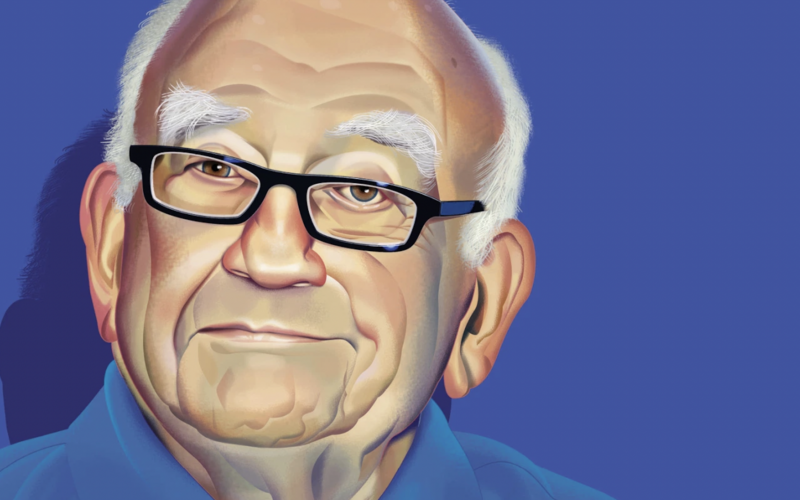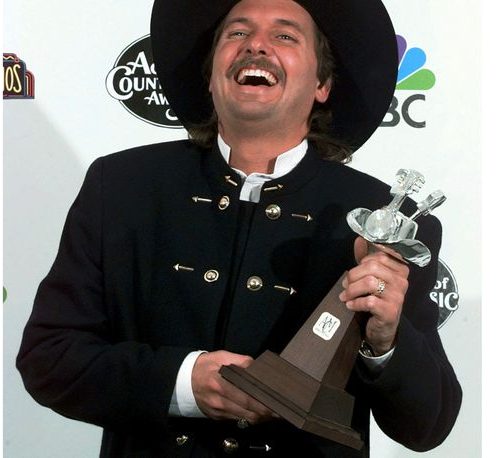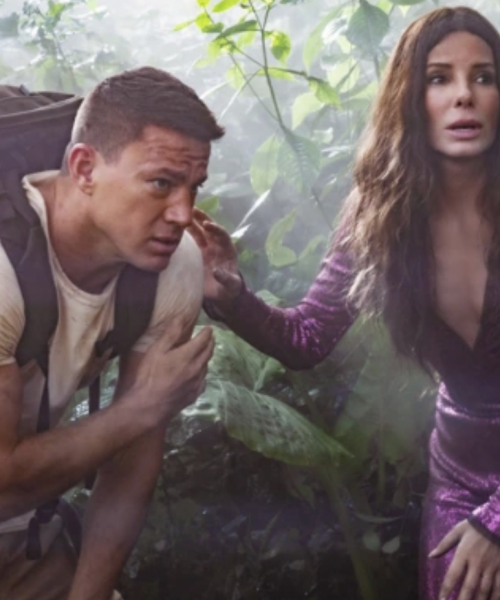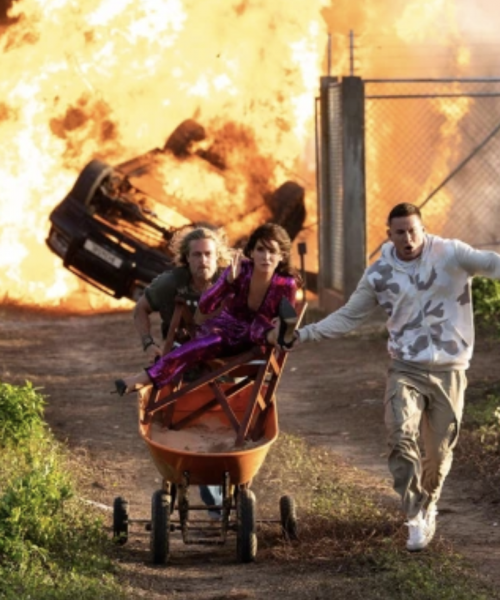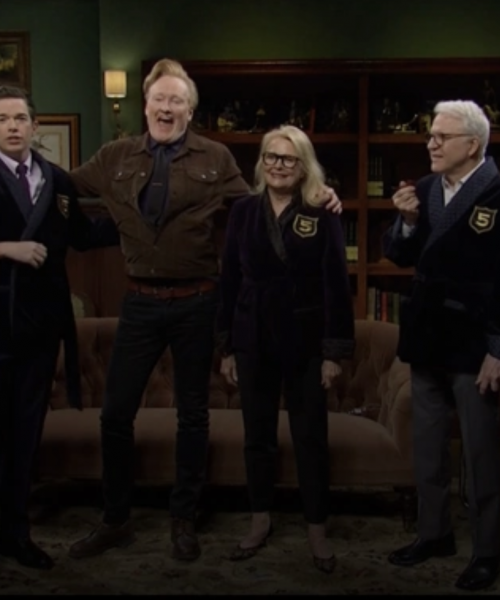BY SCOTT FEINBERG | HollywoodReporter.Com
Troy Warren for CNT #Celebrity #Entertainment
Known for portraying Lou Grant, the beloved actor shares his take on ex-nephew-in-law Gavin Newsom and what fans most adore about him: “My primary source of mail deals with one-syllable titles: ‘Up’ and ‘Elf.'”
Ed Asner is 91 but still as crotchety and lovable as he was playing Lou Grant — described by The New York Times as “one of the most endearing characters on television” — on The Mary Tyler Moore Show(1970-77) and Lou Grant (1977-82) a half-century ago. (He also popped up as the character on Rhodaand Roseanne.)
A seven-time Emmy winner, he is one of only two performers to have won drama and comedy prizes for the same part (Uzo Aduba is the other) and one of just three to have received Emmys for dramatic, comedic and limited series (the others are Aduba and Cloris Leachman).
Ahead of the second pandemic-era Emmys, the former two-term president of SAG (1981-85) and 1996 inductee into the TV Academy Hall of Fame — not to mention author of a memoir, Son of a Junkman: My Life From the West Bottoms of Kansas City to the Bright Lights of Hollywood — spoke with The Hollywood Reporter about his life and career.
Let’s talk about your parents and where you were born.
I was born in Kansas City, Missouri, but raised in Kansas City, Kansas. My parents, God love them, were proprietors of a junkyard.
You were not born with the name Ed, right?
Yes and no. My parents were Orthodox Jews. If you were religious, you were given a Hebrew name. My Hebrew name was Yitzhak, which is Isaac, and it was transliterated into Eddie.
What were you called at home and by friends?
Schmeckel. [Asner is joking — this is a Yiddish word for penis.]
How did acting enter the picture?
I was a stellar student at Hebrew school and the rabbi had big hopes for me, but I was a grave disappointment to him. I needed to revolt against something, and I revolted against the religion.

Your first roles were on radio, right?
Radio was in high school. Florence Moore was the teacher — nice teacher, too — and she worked with us to create our own program, which we had on a local station for 15 minutes once a week. Taught us to write and to produce, sound effects, cast, act, everything. I volunteered to act whenever I could. So that was my theatrical background, other than Sunday school plays in my earlier years.
You briefly attended the University of Chicago, but left and were drafted during the Korean War …
I was eventually chosen to go to Fort Monmouth [in New Jersey], where I saw flying saucers. And then, while being engaged there, I decided, “Hey, I want to be an actor. So I’m going to go and tell them at Special Services that I’m an actor and that I want to be reassigned to them.” So I went to the non-commo [non-commissioned officer] who was in charge of that desk. He listened to me and said, “Heh, heh, heh. We’re 15 miles from New York. What the hell do we need you for?” So I sadly and definitively went back to learning radar and was eventually assigned to the Signal Corps and stationed not in Korea, but in France.
Toward the end of your service, you got a letter that brought you back to Chicago, right?
A week before I went home, I got a letter from Paul Sills, whom I had known at the university in the brief time I was there. He said, “Hey, we’re making a theater on the near North Side. We’re going to do old classics and new plays. Come join us.” I immediately wrote him and said, “I will.” So I went back to Kansas City, spent a week there with family, and then went to Chicago to begin rehearsals the next day.
That was the Playwright’s Theater Club, which later became the Compass Players and eventually The Second City. By that time, though, you had gone to New York.
I was getting wonderful reviews in two of the Chicago papers. I took those reviews, collected them and decided to move to New York at the end of ’55 and try to peddle them.

Were you primarily hoping to do theater or TV? It was the golden age of TV there.
The golden age of TV was when I did Mary Tyler Moore.
The golden age of live TV, excuse me. You eventually made it to Broadway in a play starring Jack Lemmon, but it closed after 36 performances. That was shortly before you left New York for L.A. Coincidence?
It was coincidental. I just didn’t feel New York had anything planned for me. So I had to try greener fields.
Your big-screen debut was in one of the two films you made with Elvis, Kid Galahad. Was that exciting?
I did Kid Galahad with Elvis and then a few years later Change of Habit — which included Mary Tyler Moore, but we never worked together. I don’t recall it being such a big deal.
How about a few years later when you played the nemesis of John Wayne in Howard Hawks’ El Dorado?
That was big league.
So it’s 1969, you’ve played a comedic part in a TV movie called Doug Selby, D.A., and you get a call about an audition?
Yeah, they wanted me to audition for the boss in Mary Tyler Moore. Gavin MacLeod preceded me at the reading. He knew I was following him in, and he said I’d be better suited for the role, and he was better suited for Murray. Anyway, they had me come in and read, I plodded through the reading and Jim Brooks said, “That was a very intelligent reading.” And I mumbled, “Yeah, but it wasn’t funny.” They said, “Why don’t we have you back to read with Mary? We want you to read it all-out, like a crazy, wild, meshuga, nutso.” So I said, “Well, why don’t you let me read it that way now, and if I don’t do well, don’t have me back?” That’s a revolutionary statement. He said, “All right, we’ll try it.” So I read it that way, like a meshuga, and they laughed. Jim said, “Read it just like that when you come back with Mary.” A week to 10 days later I came back and read with Mary. After I had the job, they told me that Mary said at the time, “Are you sure?” And they said, “That’s your Lou Grant.”

Do you happen to remember what they had you do at the audition?
Yeah. The hiring scene.
This is the one in the pilot where you famously say, “I hate spunk”?
Yeah.
Fantastic. How soon did you realize that you were a part of something special?
I liked what I read. I liked what the writers came down with. I had no idea about its longevity. I just knew it was a job. I didn’t know about it breaking barriers for single females — I didn’t know anything about that. I didn’t know that they were oppressed! But it began to grow on me that we had a hot item here.
As you think back to those years, was it fun? Stressful? You were suddenly a famous actor on a hit show.
Well, I was a working actor on a medium, on TV. No more waiting for the next gig. I had a permanent gig for at least a year. That was neat.
Is it true that you once went on a date with Mary in real life?
Yeah.
What’s the story behind that?
Dull.
This was mid-run of the series?
No, probably toward the end.
Even if it didn’t go well romantically, you and she were friends?
She was a doll.
The “Chuckles Bites the Dust” episode of the show was chosen by TV Guide as the greatest episode of TV ever. Any special memories?
It was written by the greatest writer of TV at the time, David Lloyd, who was a contributing writer for the show. This one stood out because it allowed Mary to be the pigeon of the whole MTM gang. She was the victim. And she was made to feel it every inch of the way.
Did you ever have a hard time on that episode keeping yourself from cracking up on camera?
No, we didn’t. Breaking up was part of the joke of that episode, but we did not individually have any trouble keeping a straight face. Where we had trouble was on the show wherein I come into the office and I somehow or other have gotten a toupee. And then lo and behold, Murray, who was as bald as a billiard cue, whips out his toupee. And then, blow of all blows, John Amos pulls out his toupee and topped everyone. Unbelievable. (Laughs.)
Around the time MTM was ending and Lou Grant beginning, you did Rich Man, Poor Man — the first time you were asked to play a non-comedic role since becoming famous.
Right. If I ever fought for a role, I would say I fought for that one. When I first heard about being mentioned for it, I felt I was wrong for it. But Harve Bennett was the creative producer and said he wanted me. I don’t think I ever invested in a role more than that one, wanting it to succeed. And we killed it. I don’t think it’s aged in the time that’s passed.
The other one was Roots, in which you played the captain who brought over Kunta Kinte. Did you ever dream it would be as big as it became?
First of all, I never thought I had a chance to be in it. It was being directed by David Greene, who was the director I had a little conflict with in Rich Man. I thought he certainly wouldn’t want me back. But the producer wanted me. I thought David Greene would reject me, but he didn’t. But they first off put me in the role of the first mate, eventually played by Ralph Waite. I thought, “I’ve done those roles before. I’d rather do something new.” And then we talked about the captain.
How did you respond when broached about the idea of a Mary Tyler Moore Show spinoff centered on Lou — only, instead of doing it as a 30-minute multicam comedy about TV journalism shot in front of an audience, it would be an hourlong single-cam drama about newspaper journalism shot without an audience?
I so trusted my two geniuses of Mary Tyler Moore, Allan Burns and Jim Brooks, that I said, “Whatever you guys say.” They said, “We think we need to go back to Lou’s roots, which was newspapers, and we think that an hour show would serve it right.” So we went back to his roots and we had the best information show about newspapers you could find.
I heard that you had an interesting meeting with your therapist early in the run of Lou Grant.
When the show opened in the fall, I went to my usual meeting with my Freudian therapist, and I waited and I waited, and finally, in the middle of the session, I said, “Well, what’d you think [about the new show]?!” He said, “Why do you grimace so much?” I thought, “Moi? Grimace? What’s he talking about?” I never realized. I came from a half-hour show that had an audience at the studio — 300 people — and they provided the laughs. Of course, we had an editor named David Davis who brought in the laughs or toned them down. But an hour show is different. Nobody laughs at whatever the laugh is, so I guess I thought, “Well, we have to give a cue that that’s a laugh line for the people at home,” so I grimaced as my cue. And when my therapist said that — the greatest piece of advice I ever got from him — I thought, “Oh, my God,” slapped my head and stopped grimacing.
Did you like doing Lou Grant as much as Mary Tyler Moore?
The effect of the laugh at the right moment was enormously restorative and energizing. You don’t have that with an hour show, you just don’t.
It sounds like you had more fun on Mary Tyler Moore.
Yeah, of course. Absolutely. There’s nothing more fun than hearing rip-roaring laughter from an audience.
Lou Grant was doing great in the ratings. You won a bunch more Emmys. And then the network pulled the plug. You had recently become the president of SAG and had been a bit outspoken. And you’ve said that you think CBS chief William H. Paley had it out for you. Did you have a fight or something?
No. I know that his wife loved the show. But he had [pulled the plug] before. He did it with The Smothers Brothers. That was done to ours, too.
Was that painful?
Yeah, it put me back on the streets again. And it showed that you’re never too big.

A whole new generation of people discovered you through Up. You’ve done a lot of voice acting, but that one really moved people of all ages.
My primary source of mail deals with one-syllable titles: Up and Elf. I love them both. Will Ferrell is a genius and the funniest man I came across since Ted Knight. Up was geniusly written.
How has the pandemic impacted your life?
It changed my life. It seems like it’s changed everybody’s life — and I think it’s changed performing and creativity as much as anything else. My eyesight is not the greatest and my hearing is not the greatest, so I don’t go out much anyway. I sit here most of the time, bored as hell, not sure which way to turn. I don’t know. I’m waiting for the next gig, and they’re slower in coming in now, I can tell you.
You’ve been engaged in the back-and-forth about SAG-AFTRA members who have lost their health coverage during the pandemic, signing on to a lawsuit about it.
I gave them my name and they used it prominently and pursued the suit. I have always been a member of Membership First, which is the rebel group of SAG, and I feel that we have a point, that the suit is very warranted.

Gavin Newsom, the governor of California who’s now facing a recall, was your nephew by marriage. You actively campaigned for him. Should he or should he not be recalled?
Oh, cut it out. He is a very, very bright, promising, honest politician who made a mistake. One of the many who have made mistakes in their lives. Not as many as Andrew Cuomo.
How do you think President Biden is doing?
Afghanistan is a terrible setback for Biden, though he is certainly not to blame — he’s only been in office six months for God’s sake! It’s a shame. But I’m sure he knows how to buckle under and take it. I think he’s done a great job with the welfare bill. And I think that we’ll be a bigger and better country when he comes to the end of his presidency.
You’re 91, but how old do you feel?
If it weren’t for my bad left leg, I would feel younger. I’ve got many parts that need to be bolstered and refurbished. And I haven’t got time to undergo all those changes.
What’s still on the bucket list?
I haven’t climbed Suribachi! No, I think just ensuring that I’ve left enough for the family.
In Other NEWS


























